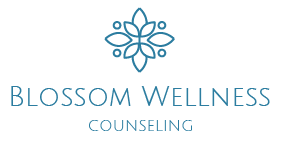Blog
Blog

Coping Mechanisms and Treatment Options for ADHD
ADHD (Attention-Deficit/Hyperactivity Disorder) can be a challenging and complicated experience that affects various aspects of your life. If you are suffering from this disorder, it is crucial to understand that the struggle may go beyond lack of focus and attention or being hyperactive.
People with ADHD find it hard to maintain focus on a given task, especially when they’re not interested. They get easily distracted and they forget things. They may also show signs of restlessness and may act without thinking. Some may even have difficulty managing their emotions.
These struggles can affect academic and work performances, relationships, self-esteem, and getting the normal, daily tasks done, which can be exhausting. But there’s hope at the end of the tunnel. With proper diagnosis, treatment, and support, you can lead a fulfilling and successful life. Let’s take a look at some coping mechanisms and treatment options for ADHD.
Coping Mechanisms for ADHD
Coping with ADHD begins with self-awareness and understanding of your unique strengths and weaknesses. Take an inventory of these and then implement the coping strategies that work for you as listed below.
1. Time Management Techniques
Time management can be difficult, even for people without ADHD. So, here are some time management techniques to try if you find it challenging to manage time effectively.
Have a visual representation of your tasks and responsibilities. You may want to use a planner, a calendar, or a physical whiteboard where you can write down all your tasks for the day.
If you have a big project, break it down into smaller tasks so you can easily manage them and not feel overwhelmed. It doesn’t have to be a big project—anything that feels a bit heavy for you can be broken down into smaller steps.
Learn to prioritize your tasks. Use a system like the Eisenhower Box (urgent/important matrix) to help you focus on what truly needs to be done first.
Set SMART goals: Specific, Measurable, Achievable, Relevant, and Time-Bound.
Set timers to help you stay on track and maintain focus by working in short bursts (e.g. Pomodoro Technique – 25 minutes of focused work followed by a 5-minute break) or to limit the time spent on a particular task.
Remove distractions. This could mean working in a quiet space, using noise-canceling headphones, or turning off notifications on your phone.
Reward yourself for every completed task. Choose rewards that are meaningful to you and make sure to celebrate your accomplishments, no matter how small.
2. Mindfulness and Relaxation Practices
Mindfulness and relaxation practices can be particularly beneficial for individuals with ADHD. These practices help you focus, manage impulsive behaviors, and reduce stress. Here are some techniques:
Deep Breathing Exercises
4-7-8 Technique – Breathe in through the nose, count 4 seconds; hold the breath, count 7 seconds; breathe out through the mouth, count 8 seconds.
Belly Breathing – Put your hand on your chest and another hand on your belly. Breathe deeply and ensure that your chest does not rise more than your belly.
Mindful Meditation
Body Scan – This type of mindful meditation involves “scanning” your body from your toes up to your head. Be aware of the sensations in each part without judgment.
Focused Attention – In this method, you pick something to be your point of focus, like your breath or something tangible: a flower, a candle, etc. The idea is to have something to bring your mind back to when you feel your thoughts wander.
Progressive Muscle Relaxation – Start by tensing and relaxing one muscle group at a time from your toes to your head. This releases tension in your body.
Mindful Walking – Enjoy every step. Feel the ground beneath your feet. Breathe deeply as you walk.
Journaling – You may also write down your thoughts and feelings to help you process your emotions. Journaling can also reduce anxiety.
These are a few mindful meditation techniques you can use to help you be more focused and organized.
3. Structured Routines
Structured routines can be incredibly beneficial if you have ADHD. These routines can help to create a sense of predictability, organization, and focus. Some structured routines that may be helpful are:
Morning Routine – Wake up at the same time every day. Eat a nutritious breakfast. Take any prescribed medication. Exercise or go for a walk. Review the day’s tasks and priorities.
Work Routine – Create a to-do list or use a planner. Break tasks into smaller ones. Use timers and take short breaks. Keep a clean and organized workspace.
Afternoon Routine – Have a balanced lunch. Go for an afternoon walk or do another set of physical exercises. Check your progress and adjust plans if needed. Complete any remaining tasks before your work day is done.
You can structure an evening routine, a weekly routine, a self-care routine, or maybe even how you stay organized.
Some Treatment Options
While coping mechanisms can be effective in managing ADHD symptoms, seeking professional treatment is often necessary for comprehensive care. Treatment options for ADHD typically include a combination of medication, therapy, and behavioral interventions. Here's a closer look at these approaches:
1. Medication
Methylphenidate and amphetamine derivatives are commonly used for ADHD symptoms. These stimulant medications increase neurotransmitter levels in the brain, which improve focus, help control impulsivity and hyperactivity. Atomoxetine, a non-stimulant medication, may also be recommended for those who do not respond well to stimulants or have contraindications.
2. Therapy
Cognitive-behavioral therapy (CBT), such as psychoeducation, can help people with ADHD develop coping skills, improve self-esteem, and address co-occurring conditions such as anxiety or depression. Therapy can also provide support for family members and caregivers, promoting a better understanding and communication.
3. Behavioral Interventions
Behavioral therapy techniques, such as contingency management, reinforcement strategies, and parent training programs, focus on modifying specific behaviors associated with ADHD, such as impulsivity or inattention, to improve functioning and social interactions.
Get the support you need to create calm confidence that lasts
Get the support you need to create calm confidence that lasts
Copyright@2023 Blossom Wellness Spa, Inc.
Copyright@2023 Blossom Wellness Spa, Inc.



